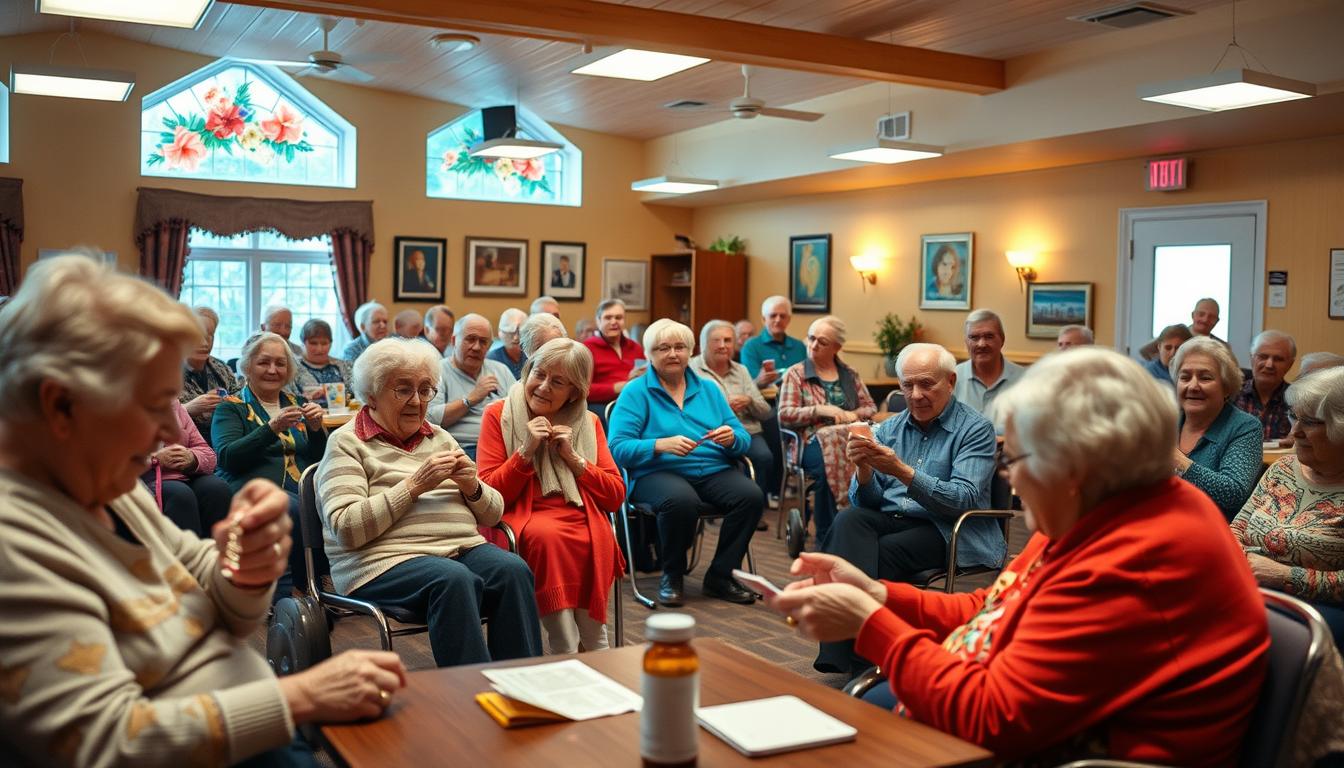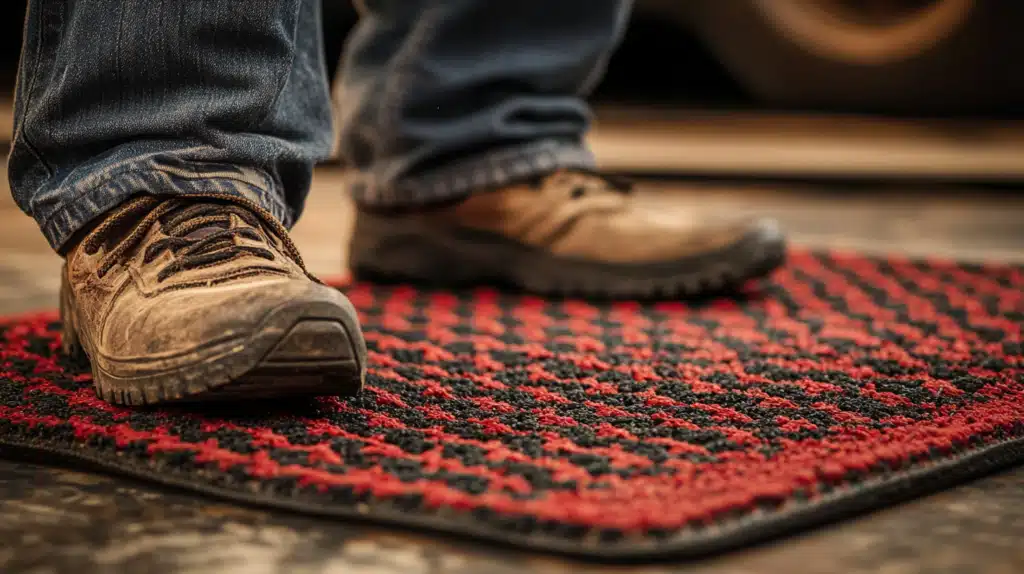A lot of people in their 40s and 50s have to take care of their elderly parents. SeniorLiving.org says that almost half of these people are also taking care of their parents who are getting older.
Not only does this situation call for kindness, but it also calls for realistic ways to help parents who are getting older.
To help our parents age well, we need to know how to care for them. Dr. Hillary Lum stresses how important it is to talk to our elderly parents often. This helps us understand the good and bad things that happen to them.
Michele Kuntz also talks about how taking care of our parents’ drugs can help them stay independent at home.
Elder care isn’t just about marking important events. It’s about helping older people stay in their own homes in their own neighborhoods.
Medical warning systems and tools that help them keep track of their medications help them stay independent for longer. This can put off the need for nursing homes or assisted living for a while. In places like Brooklyn, where many seniors prefer to age in place, home health care services offer essential support for maintaining independence. For example, dementia care in Brooklyn provides specialized in-home assistance, helping seniors with cognitive challenges manage daily tasks safely while remaining in a familiar environment.
The cost of at-home care or adult daycare is a concern. But the emotional cost of moving to a care facility is priceless. Working with experienced placement agencies can help find a care setting that feels like home.
When it’s time for a parent to move to a care facility, resources like UCHealth are there to help. They help people with memory and the people who care for them. You won’t have to go through these changes by yourself.
It’s not easy to take care of old parents. It means figuring out what they need, taking care of their health, and knowing the law.
We need useful tools for caregivers right away. We can show our parents respect by focusing on their independence and mental health.
Recognizing the Need for Elderly Care Support
As our parents age, it’s important to know when they need extra help. Elderly care support includes physical help, daily tasks, and emotional support. Understanding their needs can greatly improve their life and help them live longer.
Understanding Instrumental Activities of Daily Living (IADLs)
The National Institutes of Health says IADLs are key tasks for living independently. These include managing medications, handling money, cooking, and keeping the house clean. If our aging parents have trouble with these, they might need support. Early help can prevent accidents or health problems from not managing meds or eating right.
Identifying Signs Your Aging Parent May Need Assistance
Seeing when an aging parent needs help is the first step. These signs can show up in different ways:
- Memory Issues: Forgetting meds or missing appointments can mean they’re struggling.
- Problems with your body: Having trouble walking or being afraid to take a bath because you might fall are big red flags.
- Behavior Changes: People who have big mood swings, avoid friends, or don’t take care of themselves are red flags.
- Concerns about home safety: bruises that don’t make sense or more stuff lying around could mean that they’re having trouble moving around and keeping the house clean.
Helping aging parents entails observing minute changes in their behavior and ability. Their safety and happiness may be much improved by early assistance.
Families may ensure their aging loved ones receive the assistance they require by candid communication and observation of these indicators.
This enables people to remain independent for longer and facilitates the polite and simple change to requiring greater care.
Initiating Conversations About Elderly Parent Support
Talking about support for aging parents needs care and understanding. It’s important to start slowly and with kindness. This way, parents feel heard and valued.
Approaching the Subject with Sensitivity and Understanding
Start with empathy and concern. Pick a good time and place for the talk. Use open questions to understand their feelings and worries.
This shows respect for their choices. It also helps you understand their needs better.
Seeking Professional Advice: Social Workers and Geriatricians
Experts like social workers and geriatricians are very helpful. They look at all aspects of aging parents’ needs. They suggest the right resources for care.
They help clear up what options are available. This makes planning easier.
Getting advice from these experts can lead to better conversations. You might talk about moving to senior living. This ensures safety and social interaction.
https://youtube.com/watch?v=ohwGmUaybVQ
Starting early conversations about care can reduce stress. Look for signs of need, like daily challenges. This helps plan ahead.
It’s important to give parents time to accept help. This might take months. Be patient and supportive.
The final decision is up to the parents. But being prepared and supportive helps. It makes the transition smoother and keeps their dignity.
Support Aging Parents
Helping aging parents is a large responsibility with regard for their health as well as emotions. They may have several difficulties as they become older. One should be alert for any indicators suggesting a need for a revised care plan or extra assistance.
Elder care advice begins with observing minute changes in their handling of daily responsibilities.
For instance, it’s a clue if they find it difficult with cooking, cleaning, or personal hygiene. Discuss their care also if they look depressed, forgetful, or have mood swings.
Making their living area safer is one smart option. Grab bars, better lighting, and trip hazard removal assist to avoid falls. These easy actions can really change everything.
It’s also key to make sure they take their medicine as needed and might need to see a doctor more often.
Technology can really help older adults stay safe and independent. Medical alert systems, for instance, can be a lifesaver for those living alone. They give peace of mind to both the seniors and their families.
Here are some common issues and signs that it’s time to offer more support:
|
Issue |
Signs to Watch For |
Recommended Actions |
|---|---|---|
|
Day-to-Day Tasks |
Missed medications, unprepared meals |
Setup reminders, consider a home aide |
|
Physical Health |
Weight fluctuations, poor hygiene |
Regular medical checkups |
|
Mental Health |
Changes in mood, memory lapses |
Consult health professionals |
|
Safety Concerns |
Difficulty navigating home |
Home modifications, medical alert system |
If you can’t be there in person, you can stay connected through phone calls, remote health appointments, or visits. Using technology like telehealth can also help you stay involved from afar.
Every family is unique, and the care plan should be tailored to their needs. Talking openly with your parents about their needs and wishes is important. It helps create a supportive environment for their health and happiness.
Exploring Senior Living Options for Aging Parents
Knowing several living choices is essential when families look after elderly loved ones. They can relocate to areas with greater assistance or make houses safer. Senior safety and happiness are the objectives here.
Home Support: Making Independent Living Safer
Making adjustments and obtaining aged care assistance will aid individuals living at home. Installing emergency systems and grab bars keeps children safe. Daily chores including cleaning and prescription taking can be assisted by caregivers.
Most Elkhart’s elderly choose to remain in their homes. Their dwellings should thus be safe and comfortable for them.

The Transition to Assisted Living or Nursing Facilities
When staying at home is not possible, assisted living is a good option. It offers care without losing independence. These places are for those who need help but not full-time medical care.
Assisted living costs about $4,995 a month for a one-bedroom. Families need to plan their finances. They might look into VA Aid and Attendance to help pay.
One should visit several facilities and engage in staff communication. This aids families in deciding the proper location for their loved ones.
Basically, employing resources is essential whether one is relocating to a facility or improving the security of their house. Knowing what elders require enables families to decide what best to do for their loved ones.
Assessing Mobility and Transportation for Elders
Ensuring safety and independence is key when caring for the elderly. Watching how they move and travel gives us important insights. This helps us know what kind of support they need.
The timed up-and-go test is a key indicator of mobility issues. If it takes more than 12 seconds, it could mean a high risk of falls. This suggests the need for extra care.
Other signs, like needing many steps to turn or trouble staying steady, also point to dangers. Experts might recommend changes like grab bars or ramps to make homes safer.
|
Area of Concern |
Assessment Method |
Possible Modifications |
|---|---|---|
|
Gait and Mobility |
Timed up-and-go test |
Handrails, enhanced lighting |
|
Home Safety |
Professional Assessment by CAPS |
Grab bars, higher toilet seats |
|
Driving Safety |
Assessment of cognitive and physical abilities |
Alternatives like ridesharing or public transport |
|
Mental Health |
Observation of behavior changes |
Access to mental health support |
Investigating easily available means of transportation might enable seniors remain active. Their quality of living gains from this.
Also crucial is discussing driving restrictions. Driving abilities lost might be dangerous. Investigating other means of mobility, such as technology or community activities, provides doable answers.
Encouragement of exercise or use of mobility devices like walkers helps seniors remain independent. Getting a professional evaluation on driving and health guarantees the appropriate help for every individual.
Taking care of the elderly depends on knowing mobility and transportation requirements. It makes our loved ones’s living environment safer and more autonomous.
Navigating Healthcare and Medication Management
Improving the quality of life for our aging parents depends on our management of medications and healthcare.
Seniors’ healthcare demands are becoming more complicated, hence you have to take care of everything from routine check-ups to medication intake. Often bearing this burden, family members require help and effective tools.
Importance of Medication Adherence and Compliance
Improving the quality of life for our aging parents depends on our management of medications and healthcare.
Seniors’ healthcare demands are becoming more complicated, hence you have to take care of everything from routine check-ups to medication intake. Often bearing this burden, family members require help and effective tools.
Coordinating with Healthcare Providers and Pharmacies
Working well with healthcare teams is important. It ensures meds are right and refilled on time. Telemedicine helps by making communication easier without needing to travel, supporting caregivers well.
|
Aspect |
Statistic |
Implication for Caregivers |
|---|---|---|
|
Prescription Management |
87% seniors on medication |
High demand for accurate medication management |
|
Communication with Providers |
Effective communication leads to better outcomes |
Need for ongoing dialogue with healthcare professionals |
|
Caregiver Support |
40% less likely to experience burnout with support |
Importance of accessing caregiver resources |
|
Use of Technology |
Increase in telemedicine and reminder apps usage |
Enhances efficiency in managing healthcare |
Managing healthcare for an aging parent is more than just meds. It’s about making sure the whole support system works well together. Having access to good caregiver resources and support can make this job easier. It helps our elders live their later years with dignity and comfort.
Financial Planning for Elderly Care Support
When families plan to care for their aging parents, they need to think about money.
Key is knowing the expenses of various kinds of care. Whether it’s for senior living, home care, or special facilities, this helps make wise decisions and maintains solid financial situation.
One should research VA benefits, Medicaid, and health insurance. Families may also find help via long-term care insurance, reverse mortgages, or savings.
|
State |
No. of Financial Planning Association Chapters |
|---|---|
|
California |
14 |
|
New York |
8 |
|
Florida |
9 |
|
Texas |
6 |
|
Pennsylvania |
3 |
|
Nevada |
3 |
|
Ohio |
5 |
|
Illinois |
3 |
|
Alabama |
2 |
|
Michigan |
1 |
Getting aging parent advice and aging parents assistance often means seeking help. Elder law attorneys and financial advisers can help families. They assist with legal matters, financial management, and advocating of elderly rights.
Early financial talks with aging parents might help to simplify things. It simplifies care and helps one avoid tension. Families should so freely and transparently discuss finances to help their aging loved ones properly.
Maintaining Emotional Support and Mental Health
When taking care of elderly parents, you need to pay attention to both their wants and your own health. This method makes sure that both people stay mentally and emotionally healthy.
Addressing Elderly Loneliness and Social Engagement
As people get older, loneliness is a big problem. It can hurt their mental health, so they need to spend time with other people. Caregivers can help by getting seniors to go to neighborhood events or adult babysitting.
These things help you get along with others and fight loneliness. Aside from that, they make older parents happier and better for their emotional health.

Providing Support Through Life’s Transitions
Changes in life can be hard for parents who are getting older. Getting emotional support from family is very important at this time. It’s important to listen and show care when someone is going through a hard time, like moving, losing a loved one, or health problems.
Caregivers also need help because it can be hard on their emotions to care for others. It can help to talk to mental health workers and build a strong network of support. Helpers can also take care of themselves this way.
Legal Considerations and Caregiving Responsibilities
It’s more than just helping with daily tasks to take care of old parents. There are also important law issues and caring duties that come up.
These make sure that their rights and honor are protected. Setting up legal tools like Powers of Attorney and Advanced Directives is important for taking care of their wealth and well-being.
Understanding Powers of Attorney and Advanced Directives
A Power of Attorney lets someone make decisions about your parents’ health and money when you can’t. In this way, activities will be in line with what they want.
Advanced Directives spell out what kind of medical care a parent would like when they are unable to do so themselves.
Talking about these early on is vital, and resources like the American Bar Association Commission can help.
Protecting Your Aging Parents’ Rights and Wishes
Addressing legal considerations like filial responsibility laws is important. It protects both the caregiver and the aging parent. In California, though these laws are rarely enforced, knowing them is key. They can affect caregiving decisions, including finance and personal liability.
Families should approach caregiving and legal steps systematically. Here’s a detailed table on California Filial Responsibility Laws:
|
Aspect |
Description |
Implications |
|---|---|---|
|
Applicability |
Based on adult child’s ability to pay, parent’s need, and parent’s self-support capability |
Rarely enforced, focus on voluntary participation with public assistance as a backup |
|
Enforcement |
Nursing homes may invoke to recover costs |
Occurs in rare cases of unpaid bills and financial capability of children |
|
Penalties |
Fines, wage garnishments, or property liens |
Potential criminal charges for neglect, varying based on case specifics |
|
Alternative Care |
In-home care, assisted living, CDPAP under Medicaid |
Various programs offer personal and financial relief, aiding in complying with caregiving responsibilities while maintaining individual financial health |
Medline Plus and the National Hospice and Palliative Care Organization are very helpful when you are caring for someone who has a serious illness. They give you the knowledge you need to make and understand Advance Directives in different states.
Conclusion
In the United States, caring for our senior parents shows our deep family commitment. Heather O’Leary from Manchester, New Hampshire, is a great example. She works hard to take care of her 87-year-old mother, Kathleen McCullough, who has COPD and arthritis.
Heather’s efforts are not just about love; they are a complex task. She needs to understand elder care and find the right resources, such as exploring options for senior care near me services. This shows how important it is to support our elderly.
Helping our elders means making tough choices. We might choose to live independently or use medical devices like pacemakers. Kathleen Cairnes shows that caring for seniors is not just about health. It’s also about keeping their spirits high and giving them a sense of purpose.
Medical help, like a pacemaker, can make a big difference. It can bring back a sense of joy and life to seniors. This is what we see in the father’s story after his surgery.
Today, many people care for Alzheimer’s patients at home. Over 16 million Americans are caregivers, often for years. They face many challenges, as AARP explains.
But with the right support, caregivers can overcome these obstacles. They can ensure their loved ones are happy and comfortable in their later years. This is the power of senior parent help, caregiver resources, and elder care guidance.
















